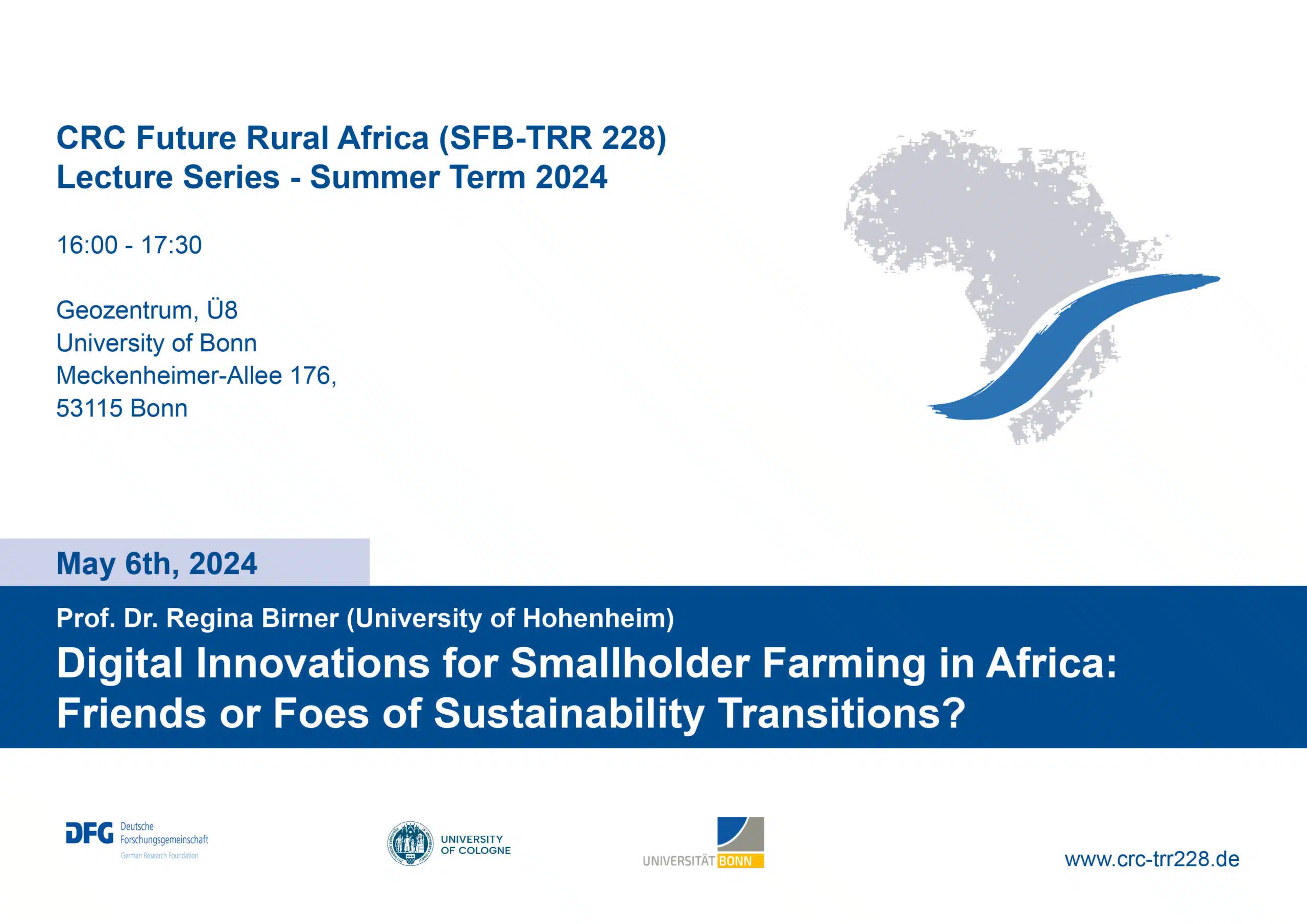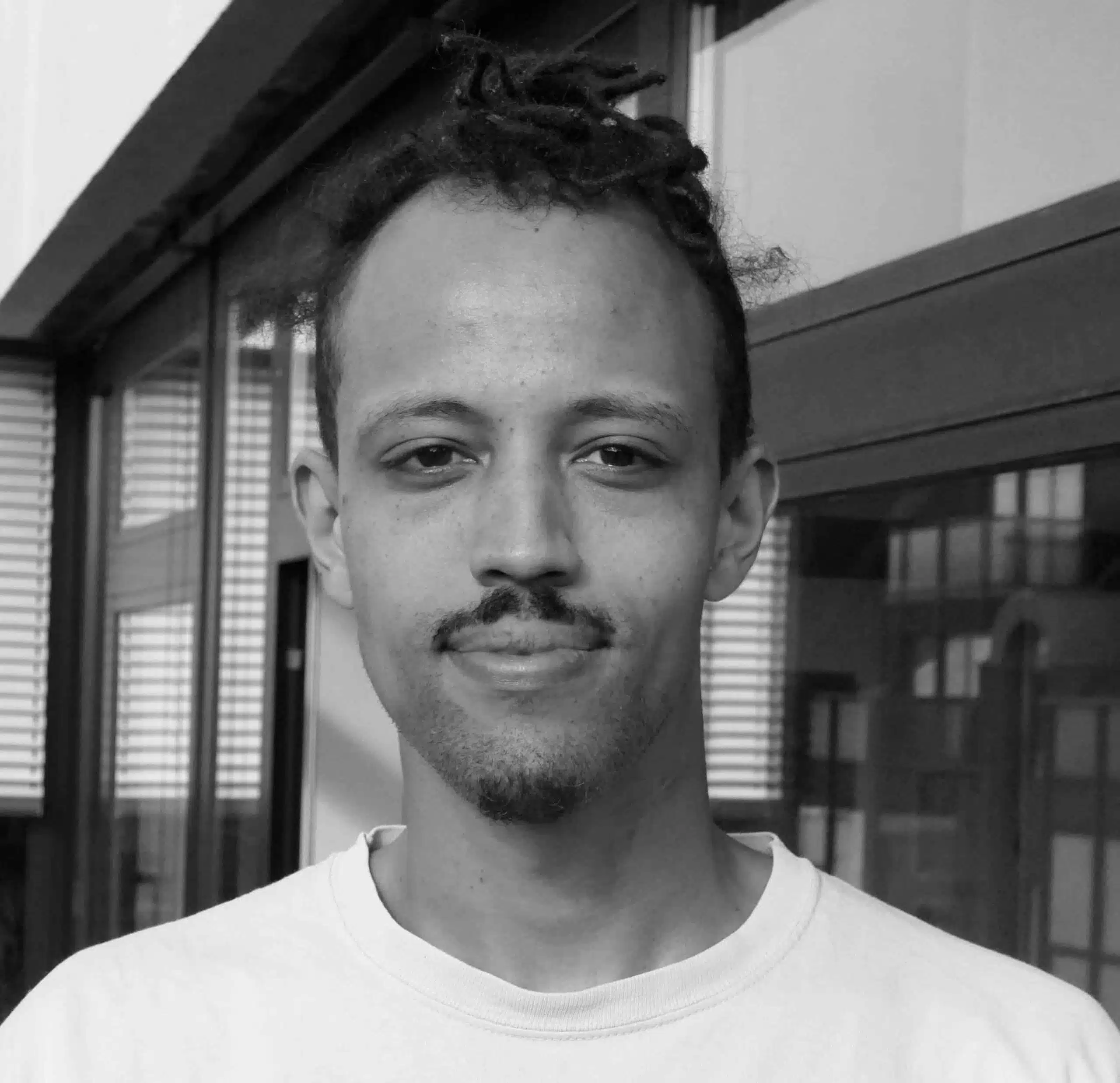CRC-TRR Future Rural Africa Public Lecture Series with Regina Birner: Digital Innovations for Smallholder Farming in Africa – Friends or Foes of Sustainability Transitions?
Prof. Dr. Regina Birner is Chair of Social and Institutional Change in Agricultural Development at the University of Hohenheim’s Hans-Ruthenberg-Institute of Tropical Agricultural Sciences.
Digital Innovations for Smallholder Farming in Africa: Friends or Foes of Sustainability Transitions?
An increasing number of digital technologies, such as advisory apps, digital market places and digitally enhanced agricultural equipment, have been developed for smallholder farmers in Africa in recent years. Proponents claim that such technologies make smallholder farming more productive and environmentally friendly whereas critics argue that these disempower farmers by placing smallholders’ data in big companies’ hands. Empirical evidence on the actual use of these tools in smallholder farming systems in Africa is still limited. Moreover, rather different types of tools are often lumped together in this controversy. The presentation will address these gaps by starting with a conceptual framework that distinguishes different types of digital tools and outlines their opportunities and risks. Subsequently, case studies on four digital tools are presented. The case studies are based on empirical research in three African countries. They include the use of “Hello Tractor”, a digital platform for machinery services in Nigeria, “iCow”, an advisory app in Kenya, the “AgroCares Scanner”, a soil testing device in Kenya, and “E-diary”, a digital management system for agricultural advisory services in Uganda. The case studies reveal three major insights: First, the actual use of such tools in smallholder farming systems often differs considerably from the use portrayed by their developers. Second, the potential of such tools to contribute to sustainability transitions in African agriculture is real, but differs widely across different types of tools. Third, there is a need to better understand the roles that the public sector, the private sector, civil society and development organizations can play in harnessing the potentials and managing the risks of digital tools for smallholder farming in agriculture.
Venue:
Geozentrum, Ü8
University of Bonn,
Meckenheimer-Allee 176,
53115 Bonn


